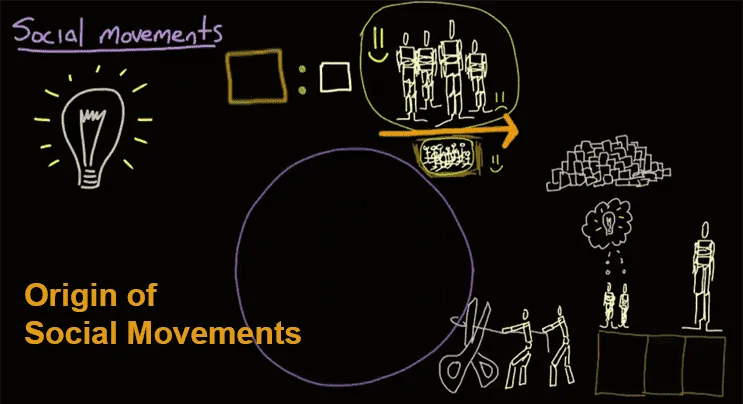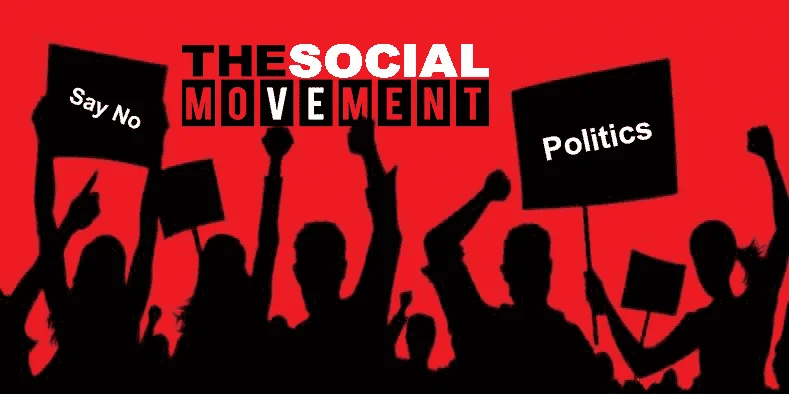Origin of Social Movements.

Sociologist has different views on origin of social movements. According to Desai held that some movements are caused by the inability of our Constitution to protect the civil and the democratic rights of people.
Rajani Kothari is of the opinion that failure of the state in social transformation of society in which repression and intimidation of large masses of people have become common, compels people to assert their rights through various struggles.
Gur (1970) and M.S.A. Rao (1979) have explained social movements in terms of relative deprivation.
Also read | Types of Social Movements.
Rao focuses on the possibility of doing something by the sufferer along with relative deprivation. Social movements arise out- of relative expectations and not necessarily out of extreme absolute conditions.
However, movements can also originate from structural strain when the normative structure and the prevailing value system does not meet people’s aspirations, the society faces strain.
A new value system is sought so as to replace the old which leads to conflicts and tension.
A woman’s status in Indian society is subordinate to males, there is discrimination against women, Indian values encourage women roles as housewives and mothers.
Also read | Approaches for Study Urban Sociology.
With increased education and employment opportunities, women’s roles are changing.
Though they work outside, yet household duties remain the same Consequently there is double burden of work. It causes role conflict and strain.
There are discriminatory attitudes at work place. Further all jobs are not open to them.
Due to these factors, women challenge the existing value system. It has resulted in women’s movement, called feminist-movement.
This movement is directed against the traditional value system which accords lower status to women.
Also read | Subject Matter and Scope of Urban Sociology.
Often relative deprivation and structural strain are related and form the basis of the movement. Social reform movements reveal an existence of both these causes.
Social movements may also emerge to offer a positive alternative, to revitalize the existing system, which may be under structural strain e.g literacy movements.
Social movements in order to succeed must have effective organic action and strong leader. Many a movements fail due to lack of leadership.
The leader is the spokesperson of the group, the coordinator and the important participator in the decisions as to the goals and methods. He is an example to others.
Also read | The Concept of Auspiciousness & Purity in Kashmiri Hindu Society according to T.N Madan.
The leader enjoys great authority, power and prestige and simultaneously has great responsibilities. The success or failure of movements largely depends on him.
The leadership functions are related to goal achievement and strengthening of the social movement by encouraging the members, stimulating coordinated action.
Ideology, that is a set of related beliefs held by a group of people, is another factor which determines the nature of the social movement. It makes people understand and justify the implications of their actions.
It indicates the goals, means and forms, practical activities of social groups of individuals. e.g various ecology movements have taken different paths.
Also read | Tana Bhagat Movement and Socio Religious Movement of Tribal.
Their means of achieving the goals may differ and thus distinguishes the social movements from one-another.
Both leadership and ideology are important as the leaders operate within an ideological framework.
The different stages through which a social movement passes are social unrest, collective excitement, formalization, institutionalisation, and dissolution. All social movements may not necessarily pass through the same stage.



